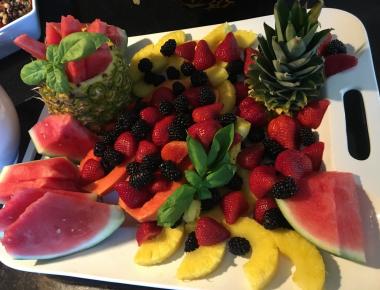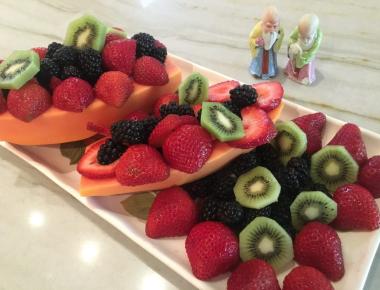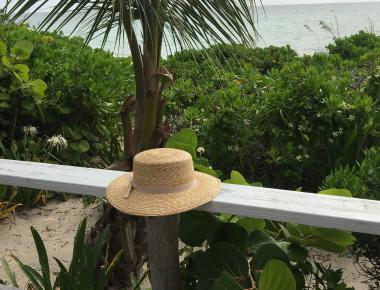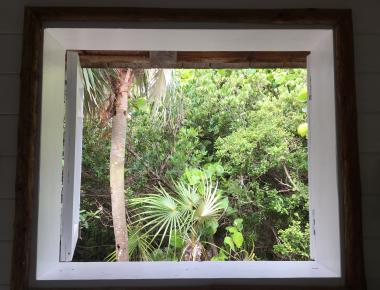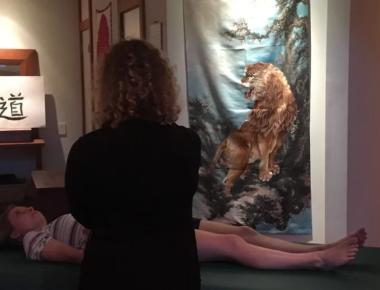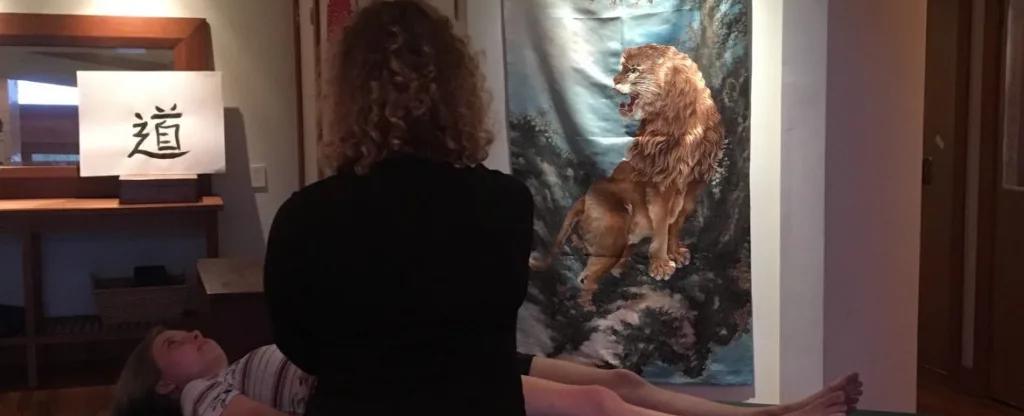
How important is emotional healing? Asking a professional in the field of acupuncture helps shed some light on how many people can feel the pain but cannot easily find the emotional energetic root behind it. I interviewed Gil Ben-Ami, an expert TCM practitioner and acupuncturist whose motto is “treating people and not diseases” and whose clients’ motto is “if you really want to heal, you have got to see Gil,” both of which I testify.
Yuliya Gulmi (YG): How often in your practice do you find that the client’s health issue has an emotional energetic root? They can easily explain you why they need help, but then you see there’s something else behind that problem.
Gil Ben-Ami (GBA): 99% of the times.
YG: Are they aware of it?
GBA: There is always, always energetic root. There’s always an emotional reason. There’s always something that the body is trying to tell you. Even if it’s an injury, there’s a reason you were injured there.
YG: Even if it’s an accident?
GBA: Even in an accident. An accident is not an accident. In the injury, there is a message there for you.
YG: We don’t know how to read that, do we?
GBA: We can, after the fact usually. But a lot of times you can avoid it. There are cases when I see a person, and I would say, “Okay, I can see where it can lead to a problem. If you are not going to change your ways, can you see where it would lead?” Definitely. So, usually I try to prevent that. When I will analyze it personally for them, and it all depends on how open they are, sometimes I will suggest a little bit more, sometimes a little bit less; need to see what the person’s response will be.
YG: Are patients usually open to discussing those roots, finding them, and working on eliminating them? To what extent are they open and committed? How many people are willing to work at it? They may take it seriously: yes, there’s a root. But how many are willing to find it and figure out how to eliminate it?
GBA: About 30%.
YG: That’s not much.
GBA: But still it is good. Most people come to acupuncture session because they have pain somewhere. And this is a very serious pain. It can be cancer, or let’s say some intestinal problems or gut issues, Crohn’s disease, colitis, and so on. That pain makes them miserable.
YG: And probably other doctors couldn’t fix it. Right?
GBA: Yes. Usually, the people that you would see, will be here after they tried everything else, and then they come to see an acupuncturist. Plus, truly treating emotional issues takes much more time, and people don’t have time in this world. Or they’re not making time for it. Prioritizing what to treat, you have to treat the pain.
YG: Earlier you said that 99% of your clients have an emotional energetic root that’s behind their health problems. What about that 1%?
GBA: 1% constitutes young children that have health problems but the root behind those problems is actually their parents’ negative emotions. These kids absorb and try to process the negative emotions of their parents and get sick. For example, they witness their parents having issues with one another or have serious fights, and they absorb those negative emotions, internalize them. So, if I have to treat the child, I must treat that child’s parents.
YG: This is very sad. We, as parents, have to be very careful and know how to take care of ourselves, so that we can do a good job taking care of kids, and that’s on top of all sorts of other parenting challenges that we may have.
My next question is about what’s behind the energetic roots. In my qigong work, I notice that a root is typically tied to a habit, as opposed to circumstances that are outside of client’s control. The habit usually is one of the two natures: (1) behavioral, and therefore visible and actionable to the client; and/or (2) mental (thought patterns), which is hard for the client to perceive and even harder to resolve. What is your experience with your clients in this regard? How do you address the challenges of this nature?
You can sort of track it back: this is what happened or here are these symptoms, – pain, troubles and bad feelings. Then there is the root. And then as you work on the root with acupuncture, qigong or whatever, you often discover it’s a habit that they have, whether it’s behavioral or mental. With behavioral habit, you can actually see what actions seem to repeat. And with the mental one, which is essentially patterns of thoughts, it is pretty much invisible to the thinker of those thoughts. People may not even know they have that habit. So how do you deal with that? How do you make them be aware of their habits? How do you suggest they fix it? Especially if it’s not behavioral, but a fathom mental activity that they cannot easily comprehend.
GBA: What we’re trying to do is figure out what causes a pattern of thoughts and a pattern of behavior. And a lot of time, there is a link that is obviously pulling in the physical. Because of their similarity, there will be some parallels. And then you can point to people those parallels: “I see this is your way of thinking, and because of that consequential stuff happens.” Let’s take people that have a hard time saying “No.” Why do they have a hard time saying “No?”
YG: Guilt.
GBA: Okay, that’s one of the reasons. But where inside of them, where is that place inside of them that they came up with the idea that every time it is hard or impossible saying “No?”
YG: Maybe, I would say, my parents were so demanding of me that I could not say “No” to them. And I guess, my feeling was guilt or fear.
GBA: What do I do to myself when I do not say “No?” I should say “No,” but I don’t. What do I allow myself to get by with? When you are feeling disrespected, where inside of you do you disrespect yourself?
YG: I allow this.
GBA: Right. So, there’s a pattern, that will go from a thought pattern that will come into emotional behavior pattern into a physical pattern. And that’s how actually this starts: it begins in the mind on a spiritual level, but then it goes to the mental, and then it goes into the emotional and then into physical. The physical is the last thing that we see. But it is physical that we see although it is the last thing that is affected. And it’s the first thing that we actually notice or recognize because it causes pain, and then we can track it back. But it started somewhere else.
YG: Is the spiritual part even harder to talk about with clients?
GBA: Spiritual is extremely hard to talk about. It’s political and sensitive. You have to be cautious with how you present things to people so that they can relate. And then it’s them who have to do something. You’re not the one that can control it. They may have to go to the person with whom they discuss things of this nature. It’s a little bit more complex. Everyone is unique with spiritual matters. A lot of stuff comes from the spiritual realm. And some are not always good resulting in imbalance.
YG: Imagine that, in addition to acupuncture, your clients who are willing to work on their problems’ roots and habits – both behavioral and mental – find a way and a method (e.g., qigong, physical and mental exercises, guided meditation) to implement shifts towards their goals. Would this improve the process of healing? Would this potentially improve the outcomes?
GBA: Absolutely. Truly, you can. You can suggest that they can improve. Let’s say they can start meditation by watching it or listening to it and meditating on the situation. It’s the inner commitment that a person will have, and you have no control over that. I can give somebody a list of things to do. The people that are doers will be taking action. Others may not be like that. They may think: “I don’t have pain now. So, forget about it. I’m fine.”
YG: They may say “I will do it as soon as I have time for it” and never make time for it.
GBA: Exactly. What I’m seeing is that about 99% of the problems are emotional and mental and coming from more of that pattern. But 30% of the people will actually go into action to fix it, because they care enough about themselves to understand the importance. The rest of them will not go into action, and most of these people are trying to ignore it.
YG: Fear is a very bad manipulative feeling. But sometimes in a mental exercise, it almost helps to get scared of something that’s completely undesirable and to experience that fright on a deep subconscious level, so that if I don’t want something that scares me, I better don’t do what brings it on, and I better change. So, would fear be a good tool here or no?
GBA: Fear as a tactic that has been used abundantly by Western medicine. It’s a tool. It’s very effective, extremely effective.
YG: I like how you called it a “tactic” because it should not be a strategy and way of life.
GBA: It is a tactic. There are people that this tactic works with, and there are people that you can do other things with. For example, you can say: “I’ll bet you that you cannot do something.” And because people are very competitive, they will actually do it. It is easy to see the worst-case scenario, and because of that, you can work with fear. Often people have a hard time seeing the best-case scenario because they don’t know what it looks like.
YG: Maybe it looks just like this, like things are now. And we’re rarely fully satisfied.
GBA: There’s a reason that they’re in pain. So, usually when they’re coming in pain, they’re not in a place of harmony. For them a good place will be not in pain. That doesn’t mean that this is it. There are a few levels above that, when you could be in a place where you can live a life in a complete harmony, with everything that you want to manifest will manifest into your life because you are becoming one with creator. This is a good but distant idea. Meanwhile I’m here in the physical world, and right now I’m moved by my fears, or the fear of dying, or not having one of my kids suffering, or whatever it is you know that is worse than what you experience now. Fear is coming from the outside world into us, and we can grab it because it causes pain. Joy comes from inside of us into the world. We have to open ourselves to connect with the rest of the world. We have to produce joy. And that is what people have a hard time with – producing joy.
YG: Do you have some successful stories that you can share, where a person had to change his or her patterns of behavior and thoughts and those changes helped resolve health issues?
GBA: Yes, I do. Here is one great success story. One of my client’s dealt with cancer 14 years ago, and it went into remission. He truly transformed himself. He and I talked about him not being able to really feel joy. He had to ask himself what gave him joy, and he knew he loved art. Through art he transformed himself, and this shift helped his health. He was willing to do all the work. He was committed to doing every therapy that was needed because he knew the value of doing what you love and making what you love, and it is literally bigger than life. Taking a person who is an engineer and make him into an artist is probably one of the hardest things a human can ever do.
YG: Did he remember himself as a kid liking art and wanting to draw or paint. Is it a good simple way to produce joy? Just remember what you really used to like as a kid that you are not doing enough or at all now, and give yourself a permission to do it?
GBA: These are all good clues. What produces joy is what really wakes you up in the morning. You have to ask yourself: “Why do I really wake up in the morning? What for? What makes me wake up?” Is it my kids? Yes, it is one of the things. What was it before I had kids? Why do I work? Is it to make money? Lots of people do not go to work and still wake up in the morning and get out of bed for a reason. What moves you? That’s what you have to ask.
YG: In my case, it’s some sort of beauty in the world and it’s reflected in different activities and people, and can manifest in different ways. I guess I should take a couple of those inspirations and run with them.
GBA: Look, for example, why do you feel so attracted to qigong?
YG: The change.
GBA: What is it in the change that you like? What is in you that requires it?
YG: Curiosity.
GBA: Ask and listen, so you could feel it. You’re actually going deeper and deeper into yourself, and the information comes from the essence of you.
YG: This is “I am a student forever” situation. I’m curious. I got to figure it out. And maybe I won’t use it all the time but at least I got it.
GBA: You’re going in, and you feel that it gives you a certain value, certain feeling inside, that nobody can take from you. Nobody can touch it. Truly.
YG: I just love to think and study, and then experience it, see how it works, and then practice and help people and see the change in me.
GBA: That’s it!
YG: I guess that’s one of my reasons why I get up. I am writing a paper on how to heal a broken Heart with qigong. By broken Heart, I do not just mean issues with romantic relationships but all and any toxic emotions that eventually break one’s Heart. As I turn to the true divine emotions of the Five Elements that the philosophy of TCM is based on, I ultimately realize the it is true joy that heals the broken Heart. It’s like making a full circle and returning back to the Emperor of the human body, the Heart. True joy is the ultimate feeling that could do the healing, generate love, and realize your life’s purpose. If you’re feeling true joy, then you’re either healed or you’re on the right track. Is that a good way to think?
GBA: Yes.
YG: These are very helpful interrogations into our true selves. It seems simple, but it is easier said than done.
GBA: Yes, our issues are almost never simple. Nowadays we experience so many emotions and have to assess our opinions and positions on so many issues, that our bodies start to break down because evolution have not prepared us for such an intensity. We are overwhelmed, torn apart, spread thin and so on. This results in what we call “the diseases on the 20th century.” If I invite acupuncturists with long tenure from China to my office, they will find most of my cases difficult. It is because our culture and social environment have very little space for simple life: we must work hard and fast, we must have an opinion on all issues from politics to sports and entertainment, we are always plugged in and on the go. We have to process so much and this results in an emotional avalanche that we cannot handle without falling out of balance, harmony and health.
Compare that with 100 years ago or so before the Western medicine took shape, before medical schools opened their doors in the West, when Chinese or any other natural medicine was the only tool. Life was much simpler back then. We can also compare our culture with Asian cultures nowadays, and notice that Asian cultures do not have such an intense emotional component that makes people experience negative emotions on as many accounts as we do in the West. They do not internalize so much and do not feel bad when things go a wrong way, they simply accept it and proceed with much less emotional coloring than ours.
YG: Wow, that is so true! And on top of the diseases of the 20th century, we now also have the detrimental effects of the 21st century – the digital reality. No doubt that technology did simplify our life in many ways, but it also in turning us into mindless slaves to the never-ending abundance of information, entertainment, shopping online. We become completely consumed, overstimulated, yet more lonely and less engaged with reality and other humans around us. We now can catch a digital dementia.
GBA: Yes, all of these factors make the healing more difficult because so many aspects are layered on top of one another and entangled. Nevertheless, the TCM is holding up to these tests, and we are still able to successfully help people go back to balance and harmony, or at least as close to them as possible.
YG: Thank you very much, Gil.
In practice, all unhealthy manifestation on the physical level have an emotional energetic root that needs to be identified and removed.



